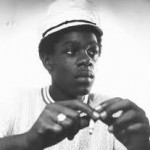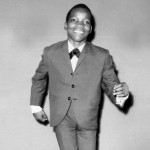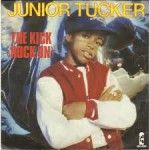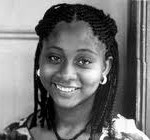The month of May is Child’s Month. And perhaps it’s a good time to look at the contributions made by child stars to the development of early Jamaican popular music.
Come to think of it, there were quite a number of them. Some of the names that would come readily to mind are Dennis Brown, Delroy Wilson, Nadine Sutherland, Errol Dunkley, Ernest Wilson, Freddy McGregor, Jacob Miller and Jimmy Tucker.
Tucker, although not so much into popular music, cannot be ignored. He was considered Jamaica’s first child prodigy. An extraordinary vocal talent, even before the age of seven, Tucker was known as ‘The Silvery Soprano’ and later ‘The Golden Tenor’. Born in 1942, it is hard to believe that by the mid-late 1940s, he began attracting audiences to venues where he performed. By the early 1950s, just the mention of the name Jimmy Tucker, would attract packed houses.

Writer Clyde Hoyte in his book, The Jimmy Tucker Story, relates that: “The silvery soprano voice of Jimmy Tucker at the age of nine years old, in 1951, gathered a momentum of demand for performances at all types of public functions and private occasions”.
In a stirring performance at the Colony Club, now Azan Super Centre and formerly the State Theatre, in the mid-1950s, Tucker was privileged to have been accompanied on piano by the incomparable pianist/vocalist, Nat King Cole, who was left in bewilderment at Tucker’s performance. Cole was said to have remarked that Tucker’s rendition of, The Lord’s Prayer, was the most stirring he had ever experienced. Cole went further to issue an invitation to the youngster for an overseas visit. It didn’t materialise. Among the many other luminaries that Tucker shared stage with, was the legendary songstress, Sarah Vaughan at The Jamaica for 1956 Jazz concerts’.

By the time Jamaica was gearing up for Independence, Delroy Wilson appeared on the scene in dramatic fashion. Wilson was only 13 years old, still in short pants, and attending Boy’s Town Primary School, when he joined Clement Dodd’s Studio One label. As far as Dodd was concerned, he arrived at the most opportune time to be used as a weapon against Prince Buster – Dodd’s arch-rival. Dodd and Buster had just come to their differences. It saw Buster firing at Dodd with a cut called, One hand wash the Other, to which Wilson replied, “Don’t you criticise, your name is Joe Liges, one hand wash the other but you don’t remember your brother”, in one titled Joe Liges. Wilson followed up with, Remember Your Nest, Prince Pharaoh, I shall not Remove and The lion of Judah – all massive hits before he reached age 15.
Still at Studio One, another Wilson with the first name Ernest, and the younger of the Clarendonians duo at 13 years old, created waves with Peter Austin by placing five number one songs on the Jamaican charts – You won’t see Me, You can’t be Happy, Rudie Bam Bam, Rude boy gone a Jail and Sho-be-do I love You. In one of Dodd’s magical moves, he paired a nine year-old, Freddy McGregor with Wilson as ‘Fitzy and Freddy’, to craft the collector’s item – Why did you do It, in the mid-1960s.

Many music aficionados tend to agree that, of all the early beginners, Dennis Brown was the most popular. Bursting on the scene as a 13-year old child singer, with the Derrick Harriott-supplied, Clement Dodd-produced monster hit, No man is and Island, in 1969, Brown seemed at the time almost unstoppable. He seemed a man inspired as he sang:
“No man is an island, no man stands alone
Treat each man as a brother
And remember each man’s dream is your own”.
Before Brown had reached 15, he was a star on the island, with more hits like, If I follow my Heart, Going to a Ball, What about the Half and Lips of Wine.
The lucky and magical number 13, seemed to have also touched Jacob Miller, as it was at that age in 1968, that he jumped into the fray with the Rocksteady piece – Love is a Message.

Talent Contest
Nadine Sutherland burst on the scene as an 11-year-old in 1979 via the Tastee Talent Contest. Shortly after she got the opportunity to record her first hit single, Starvation on the Land, for Bob Marley’s fledgling Tuff Gong label, becoming one of the first signatures on that imprint.
Errol Dunkley seems to be the longest-serving of the Jamaican child-singing stars. With a career spanning some 54 years and still enjoying an active one with several engagements planned for 2016, Dunkley seems to have no end in sight. Speaking to him from his business place in Arnett Gardens on May 17, the evergreen Dunkley said: “For the past three to four years I’ve been out in Europe. I just returned from England where I spend about four days and did a show in Manchester and I have lots of engagements this year. I have shows coming up in June … just did one with Ken Boothe last Saturday at the Police Officer’s Club. Also there’s the Startime show in Clarendon on July 2, and August 6 in Portland.

According to Dunkley, he was born “during Hurricane Charlie time’ along Pink Lane in Kingston and grew up in Jones Town and Waterhouse. He did his first recording as an 11-year-old in 1962 with the ska piece, My Queen, for producer Prince Buster. Some three years later, he had his first hit with the Barbara Lyn song, You gonna need Me, for producer Joe Gibbs’ Amalgamated label – this, while attending Warren Hall Private Secondary School, following stints at Kingston Senior and Seaward schools. Dunkley then literally burst onto the music scene eight months later, with his rocksteady composition, Stop your lying Girl, as he admonished a girl with:
“Speak the truth
If you don’t love that guy, tell him you don’t.
Every night you’re on the beach with another guy
While the poor guy work so hard to make you big and strong”.
Dunkley did the rounds with several other producers including Clement Dodd, Bunny Lee, Rupie Edwards, Jimmy Radway-(Black Cinderella), and a collaboration with Gregory Isaacs-(Movie Star).
Licensing several of his recordings to overseas companies, including his biggest hit, Ok Fred, Dunkley became well known in international music circles.
By Roy Black

